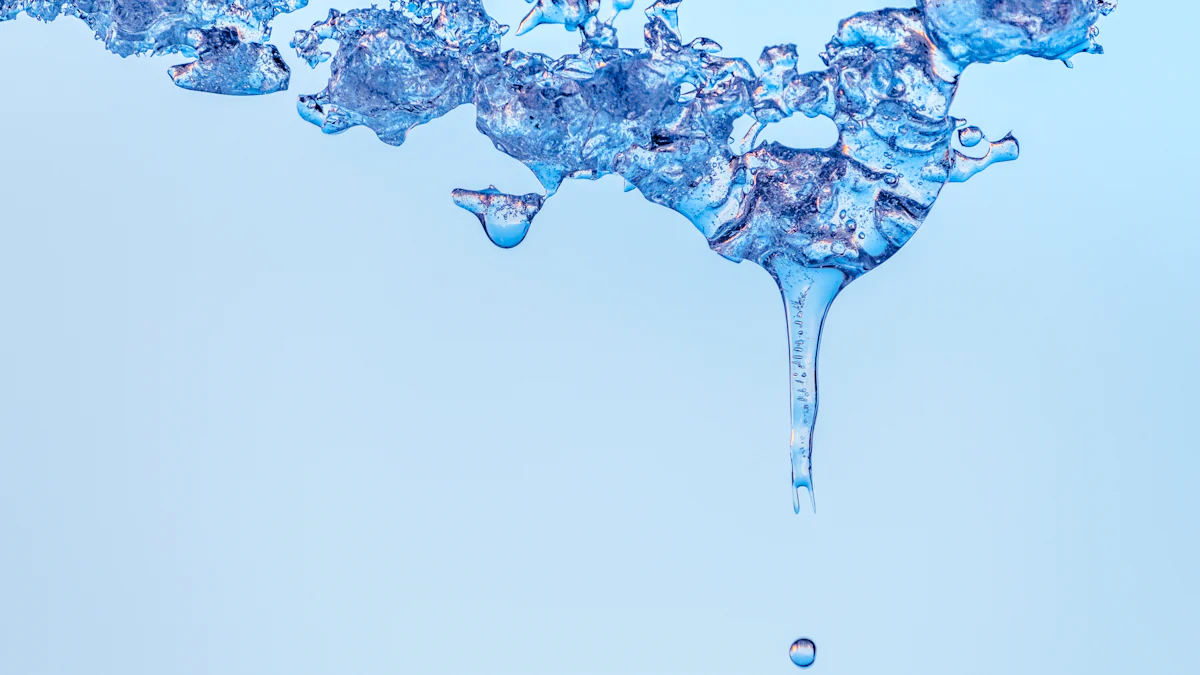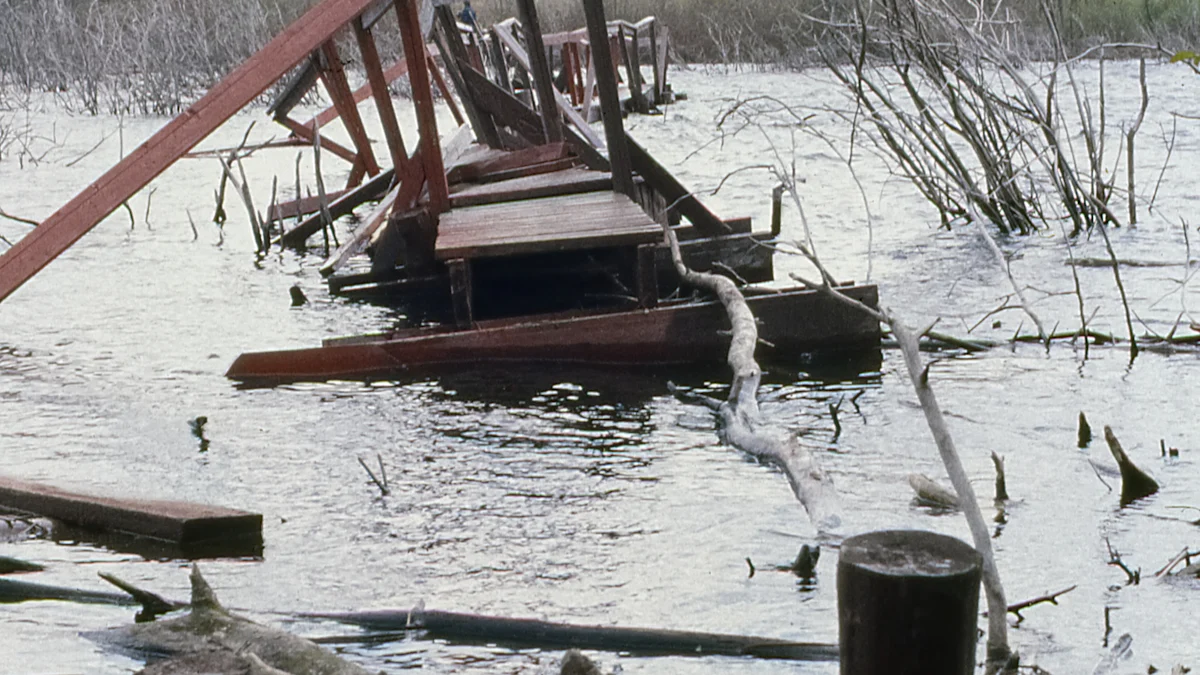
Air fryers have become a popular kitchen gadget. These devices use hot air to cook food quickly and healthily. Many people wonder about unconventional uses for these basket air fryers. One common question is, “What would happen if you put water in an air fryer?” This curiosity leads to exploring the potential effects and safety concerns of such an action.
Understanding Air Fryers
How Air Fryers Work
Basic Mechanism
An air fryer uses hot air to cook food. The appliance heats up quickly and circulates the hot air around the food. This process mimics deep frying but requires little to no oil. The hot air cooks the food evenly and makes it crispy.
Common Uses
People use air fryers for various cooking tasks. You can cook fries, chicken wings, and vegetables. Many people also use them to reheat leftovers. The appliance works well for baking small items like cookies and muffins.
Components of an Air Fryer
Heating Element
The heating element in an air fryer generates the heat needed to cook food. This component gets very hot, which allows the appliance to cook food quickly. The heating element sits at the top of the appliance.
Fan System
The fan system in an air fryer circulates the hot air. This circulation ensures that the food cooks evenly. The fan system helps achieve the crispy texture that many people love.
Basket and Tray
The basket and tray hold the food inside the air fryer. The basket usually has holes or a mesh design. This design allows hot air to reach all sides of the food. The tray catches any grease or crumbs that fall during cooking.
The Science of Water and Air Fryers
Water’s Behavior in High Heat
Boiling Point of Water
Water boils at 212°F (100°C). When water reaches this temperature, it turns into steam. This process happens quickly in a high-heat environment like an air fryer.
Steam Production
Steam forms when water boils. Steam can create moisture inside the air fryer. This moisture can affect the cooking process. Too much steam can make food soggy instead of crispy.
Interaction of Water with Air Fryer Components
Heating Element Reaction
The heating element in an air fryer gets very hot. Water can cause the heating element to react. This reaction can lead to electrical hazards. Water can also damage the heating element over time.
Impact on Fan System
The fan system circulates hot air inside the air fryer. Water can disrupt this process. Steam from boiling water can interfere with the fan’s operation. This interference can lead to uneven cooking or possible malfunctions.
Key Findings: According to HealthMyLifestyle.com, adding too much water can damage the air fryer and cause safety issues. AlsoTheCrumbsPlease.com notes that too much water can ruin the cooking process and make crispy foods soggy.
Understanding these interactions helps you use your air fryer safely and effectively.
Potential Consequences of Adding Water

Safety Concerns
Electrical Hazards
Adding water to an air fryer can lead to serious electrical hazards. Water can come into contact with the heating element or other electrical components. This contact can cause short circuits. Short circuits can result in electrical fires. Always keep water away from the electrical parts of the appliance.
Risk of Damage to the Air Fryer
Water can damage the internal components of an air fryer. The heating element and fan system can malfunction when exposed to water. Over time, water exposure can corrode these parts. Corrosion can lead to permanent damage. Replacing damaged components can be costly. Avoid adding water to prevent these risks.
Practical Outcomes
Effect on Cooking Process
Water can negatively affect the cooking process in an air fryer. Steam from boiling water can make food soggy. Soggy food will not achieve the desired crispy texture. Excess moisture can also extend cooking times. Extended cooking times can result in unevenly cooked food. For best results, avoid adding water.
Possible Malfunctions
Water can cause malfunctions in an air fryer. Steam can interfere with the fan system. Interference can lead to uneven air circulation. Uneven air circulation can cause inconsistent cooking results. In severe cases, water can cause the appliance to stop working altogether. To ensure reliable performance, do not add water.
Key Findings: According to HealthMyLifestyle.com, adding too much water can damage the air fryer and cause safety issues. AlsoTheCrumbsPlease.com notes that too much water can ruin the cooking process and make crispy foods soggy.
What Not to Do with an Air Fryer
Common Mistakes
Adding Excessive Liquids
Adding too much liquid to your basket air fryer can cause problems. Water or other liquids can create steam. Steam can make your food soggy. Soggy food will not get crispy. Excessive liquid can also damage the heating element. Always keep liquids to a minimum.
Overloading the Basket
Overloading the basket can lead to uneven cooking. The hot air needs space to circulate. Too much food in the basket blocks the air. This blockage results in some food being undercooked. Always follow the manufacturer’s guidelines for the maximum capacity. Spread the food out in a single layer for best results.
Manufacturer Guidelines
Recommended Practices
Manufacturers provide specific guidelines for using air fryers. Always read the manual before using the appliance. Use oils with high smoke points like avocado or olive oil. Avoid using cooking sprays. Cooking sprays can damage the non-stick coating. Clean the air fryer after each use. Cleaning prevents grease buildup and keeps the appliance working well.
Warranty Considerations
Ignoring the manufacturer’s guidelines can void your warranty. Adding excessive liquids or overloading the basket can cause damage. Damage from misuse may not be covered by the warranty. Always follow the recommended practices to keep your warranty valid. Proper use ensures the longevity of your basket air fryer.
Safe Practices and Alternatives
Proper Use of Air Fryers
Cooking Techniques
Using an air fryer correctly ensures the best results. Preheat the appliance before adding food. This step helps achieve a crispy texture. Arrange food in a single layer inside the basket. Overcrowding blocks hot air circulation. Flip or shake the food halfway through cooking. This action promotes even cooking. Use oils with high smoke points like avocado or olive oil. Avoid using cooking sprays. Sprays can damage the non-stick coating.
Maintenance Tips
Regular maintenance keeps your air fryer in top condition. Clean the basket and tray after each use. Remove any grease or food particles. Wipe down the interior with a damp cloth. Make sure the appliance is unplugged and cooled down before cleaning. Check the heating element for any residue buildup. Use a soft brush to clean it if necessary. Store the air fryer in a dry place when not in use. Proper care extends the lifespan of the appliance.
Alternatives to Adding Water
Using Oil Sprays
Oil sprays can enhance the cooking process without adding water. Lightly coat the food with an oil spray before cooking. This method helps achieve a golden, crispy texture. Choose oils with high smoke points. Avocado oil and olive oil work well. Avoid using too much oil. Excess oil can cause smoke and affect the taste.
Pre-soaking Ingredients
Pre-soaking ingredients can also be an effective alternative. Soak vegetables or proteins in a marinade before placing them in the air fryer. This technique adds moisture and flavor without creating steam. Pat the ingredients dry before cooking. Excess moisture can still lead to soggy food. Pre-soaking works well for items like chicken wings or tofu.
Expert Testimony:
“Adding water to your air fryer when cooking or reheating can help prevent food and leftover particles from sticking to the grill or drip pan. This makes it quick and easy to clean up after using the air fryer.”
Following these tips and alternatives ensures safe and effective use of your air fryer.
Frequently Asked Questions
Can You Add Small Amounts of Water?
Expert Opinions
Experts say adding a small amount of water to an air fryer can help retain moisture while cooking. This method can prevent food from drying out. A little water can also reduce smoke when cooking greasy foods. Always check the owner’s manual for specific instructions. Generally, adding up to 1/4 cup of water should be safe.
Expert Insight:
“Adding a small amount of water can help food retain moisture while cooking.”
User Experiences
Many users have tried adding small amounts of water to their air fryers. Some found that it helped keep their food moist. Others noticed less smoke when cooking fatty foods. However, some users reported that too much water made their food soggy. Always start with a small amount and adjust as needed.
What to Do if Water is Accidentally Added?
Immediate Steps
If water accidentally gets added to your air fryer, turn off and unplug the appliance immediately. Remove the basket and tray. Wipe down the interior with a dry cloth. Check the heating element and fan system for any water. Let the air fryer dry completely before using it again.
Long-term Care
Accidental water exposure can cause long-term issues. Regularly inspect your air fryer for any signs of damage. Clean the appliance thoroughly after each use. Keep the owner’s manual handy for troubleshooting tips. If you notice any malfunctions, contact customer support for assistance.
To sum up, adding water to an air fryer can lead to several issues. Electrical hazards and damage to the appliance are significant risks. Water can also make food soggy and affect cooking times. Always follow the manufacturer’s guidelines for safe use. Proper use ensures the best results and extends the appliance’s life. Share your experiences and questions in the comments below. Your insights can help others use their air fryers safely and effectively.
Post time: Jul-08-2024

